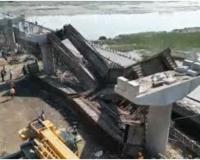Teachers in Gujarat learn local languages to improve education
State government promotes preservation of local dialects in Valsad district on World Mother Language Day
8.jpg)
On World Mother Language Day, celebrated on February 21, teachers in Dharampur, Kaprada, and Umargam were praised for learning local dialects before teaching. The state government also developed training modules to preserve these languages. Children in these areas are taught in local dialects, such as Dhodia, Koonkani, and Warli, in grades 1 to 2 and 30% of their education in grades 3 to 4.
The preservation of mother tongues is essential for cultural heritage, social and cultural identity, and knowledge. The adoption of the celebration of Mother Language Day by UNESCO on November 17, 1999, aimed to respect linguistic and cultural diversity, preserve and promote multilingualism.
Hiramalbhai Bhoya, a teacher at Hatti Primary School, said that using local dialects to explain concepts to students is more effective than using a common language. For example, instead of asking students if they have seen a crow, asking "Kawla pahel" in their local dialect elicits an immediate response.
The Valsad district has nine different dialects, including Dhodiya, Kukna, Warli, and Nehri, which change from village to village. Teachers receive three-day training from the Education Department Gandhinagar and two-day training from the District Education Training Bhavan on the local dialects.
The preservation of local dialects is crucial for preserving cultural heritage and connecting with the community. Teachers in Gujarat set an example for embracing linguistic diversity to promote a child's education and cultural identity.



